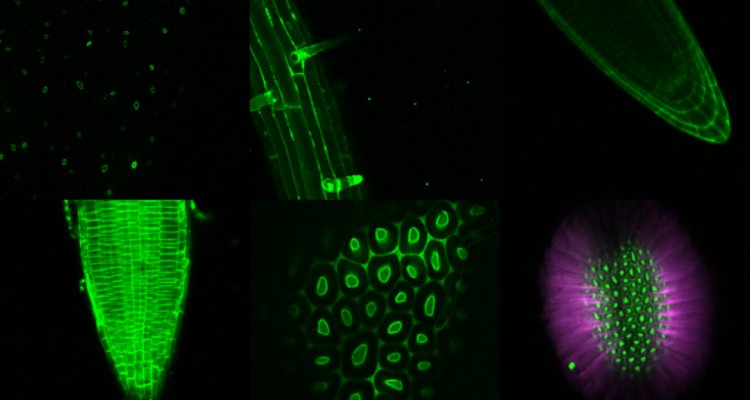
Project
Mechanosensitive molecular probes for plant mechanobiology
Plants are under constant mechanical stress, both from within and from their environment. The role of this stress on plant development is not fully understood. In order to study the role of mechanical stress on plant development we have to be able to measure these forces on a microscopic level. To achieve this we aim to develop new mechanosensitive fluorescent molecules that target specific components in plants.
Background
Mechanical stress plays a role in plant growth, differentiation and viability. This stress is always present, both originating from within (turgor pressure) and from the environment (wind and gravity) but how and to what extent these forces impact plant development is unknown. The reason for this is that directly visualizing forces on a microscale is extremely difficult since it is near impossible to attach plant tissues to force sensors, let alone individual cells. That is why we aim to develop fluorescent molecules that respond to mechanical stimuli which would then allow us to visualize forces on a microscale. Of course we need to make sure our sensor end up in the right place within plant tissue so besides visualizing forces we are also interested in if and why these molecules target specific structures in plants.
Project description
In order to visualize mechanical patterns on a microscopic scale we need a molecule that is mechanosensitive and that can target specific structures in plants. A fluorescent, mechanosensitive BODIPY fluorophore has been developed by our team previously (Michels et al. PNAS). This molecule changes its fluorescent lifetime depending on its environment which can be imaged using Fluorescence Lifetime Imaging Microscopy (FLIM). This mechanosensitive molecule however does no target anything specific within plants. That is why we developed a method to efficiently diversify this molecule and synthesize a library of >50 mechanosensitive molecules that we can screen for tissue specificity. This way we aim to develop new, tissue specific mechanosensitive molecules to study the effect of forces on plant cells. Additionally we hope to simultaneously decipher the rules regarding targeting specificity of molecules in plants.
Contact
Do you have a question about plants and mechanical stimulation, or would you like to join us as a student researcher? Please contact us.